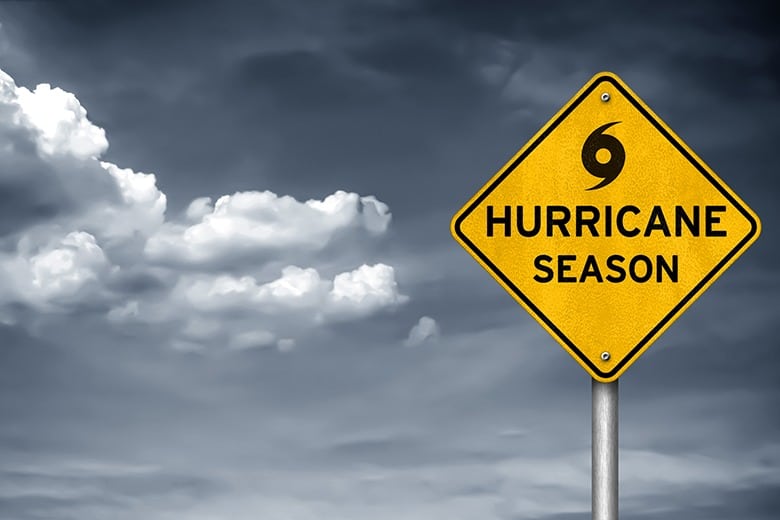The 2018 hurricane season has begun and continues until November 30, with the peak season occurring between mid-August and late October. Hurricanes are powerful systems with winds of 74 miles per hour or higher. When tropical storms or hurricanes move onto land, they sweep the ocean inward and cause tornadoes, heavy winds and rain as well as massive flooding.
Not only do hurricanes affect the coastal areas, but they can also affect mountain areas hundreds of miles from the coast. Catastrophic high winds and extensive flooding are real threats. In 2004, Hurricane Frances and Hurricane Ivan struck back to back, dumping parts of Western North Carolina including Asheville with more than 18 inches of rain. In 2017, Hurricane Irma made its way through Greenville and surrounding areas of Upstate South Carolina, causing flooding and heavy wind damage.
Hurricane Preparedness Tips
Lack of preparation is extremely dangerous for those who live in a hurricane’s path. The following is a list of precautions to take when preparing for a hurricane:
Make sure you have an emergency kit available.
Make a communication plan for you and your family to follow.
Know the evacuation routes needed to leave home.
Locate your local emergency shelters.
Watch and listen every hour to the weather reports as the storm is approaching
Gas up your vehicles and get cash from the bank. Gas stations and ATMs could be closed after a hurricane.
If the authorities ask you to leave, move quickly.
If you are in mobile home or temporary structure, seek sturdier shelter immediately.
During an evacuation, be aware of flooded or washed-out roads.
Keep a photo I.D. that that displays your home address. You may need it when asking law enforcement if it is okay for you to re-enter your area or home after a hurricane.
Secure your property by doing the following:
Bring all outdoor furniture, garbage cans and anything else that is not tied down inside.
Cover windows with storm shutters or board up them up with 5/8” plywood. Do not use tape since it does not stop windows from breaking.
Securely fasten your roof to the frame structure with straps or clips to minimize roof damage.
Clear any clogged rain gutters and downspouts near the property.
Reinforce garage doors, because wind can cause dangerous and expensive damage.
If necessary, turn off gas, water, and power if you are told to do so. Turn the refrigerator thermostat to its coldest setting and keep its doors closed.
Make sure you have a supply of water for sanitary purposes like cleaning and flushing toilets. Fill the bathtub and other larger containers with water.
Turn off propane tanks.
If you are unable to leave, go to the safest room in your house, such as a closet, or a room with no windows.
Homeowner and Flood Insurance
It is important that you check your homeowner’s policy to see if it covers damage caused by tropical storms or hurricanes. If you don’t carry flood insurance, you can buy it through a broker or agent, or through the National Flood Insurance Program (NFIP), which is managed by FEMA.
Grimes Teich Anderson is a North Carolina and South Carolina injury and disability law firm with offices in Asheville, Waynesville, Spruce Pine, Franklin and Rutherfordton, NC and Greenville, Spartanburg and Gaffney, SC.
